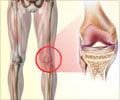Limiting the use of antibiotics for certain respiratory infections, avoiding imaging for low back pain are among the primary care suggestions.

The NPA convened a Good Stewardship Working Group to identify these practices. Members represented the three primary care specialties and composed top 5 lists for each: family medicine, internal medicine, and pediatrics. They participated in teleconference calls to suggest list items, which were then weighed against evidence in the scientific literature. Members of the specialty working groups recruited other physicians to test the suggestions in the field; each of these 83 testers rated the activities by way of an online survey. A mass e-mail to all NPA members recruited 172 other physicians for a second round of field testing, which involved completing the same survey that the initial testers completed.
The initial field testing favored all of the items except one, which was replaced. The second round of field testers also agreed with the practices, which include:
- Family medicine limit early imaging for low back pain, avoid routinely prescribing antibiotics for sinus infections, avoid ordering electrocardiograms (ECGs) or other cardiac screening in low-risk patients with no symptoms, reserve Pap tests for patients age 21 years or older who have not had hysterectomy for benign disease, and reserve dual-energy X-ray absorptiometry (DEXA) osteoporosis scans for women ages 65 years and older and men 70 years and older or who have risk factors
- Internal medicine limit early imaging for low back pain, do not order blood panels or urinalysis for screening in healthy adults with no symptoms, avoid ordering ECGs or other cardiac screening in low-risk patients with no symptoms, limit initial statin prescriptions to generic medications, and reserve DEXA osteoporosis scans for women ages 65 years and older and men 70 years and older or who have risk factors
- Pediatrics avoid prescribing antibiotics for sore throats unless tests for streptococcus are positive, limit diagnostic imaging for minor head injuries without loss of consciousness or other risk factors, do not refer middle-ear infections (otitis media with effusion) to specialists too early, tell parents to avoid giving children over-the-counter cough and cold medicines, and ensure that inhaled corticosteroids are used properly by patients with asthma Advertisement
The working group determined that regardless of which practices appeared on the lists, establishing a process to acquire physicians' consensus on practices that improve care and lower risk and cost is important. The NPA plans to distribute the top 5 lists for each specialty to their members in those fields, create training videos to help doctors communicate the value of these behaviors, and create videos that explain to patients why the steps on the top 5 lists should be taken, and reach out to consumer groups and patient-safety groups for their endorsements. "Having such endorsements," the authors conclude, "will help dispel the misconception that these clinical recommendations represent rationing and support the idea that often less is truly more."









